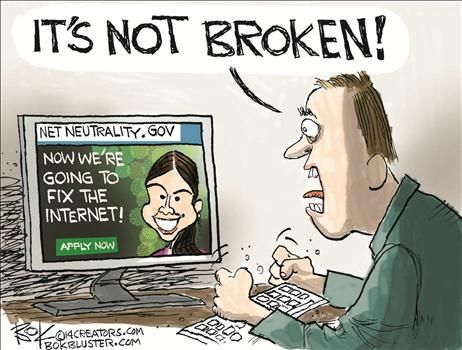No, I understand the issues of Net Neutrality just fine. Has to do with the deals between content providers and ISPs, where ISPs are demanding money from content providers for delivering their content. The longer and harder the conflict goes on, the more both businesses damage themselves. To date, the one conflict that we have information on lasted all of 3 months. No big deal if you ask me.
Once the government has it's hands in and on the Internet, in the form regulations, it'll never leave, or get out of it, and the government has proven itself far from being honest and trustworthy, especially this president, this administration and this congress.
I can imagine a back door mandate to block or slow down political opponents content. The recent Gruber videos? Undeliverable.
The government has a track record of doing this. Telephone and mobile carriers are classified the same way, right? How often has the government demanded data from them and hidden it? Even user data they've demanded and obtained this way. Do you think that once classified as utilities, that ISPs are somehow exempt from the same sort of demands? I'm thinking not.
So it is a data privacy issue. Yes, I know, a subpena from the FISA court is all it takes, but better at least a cursory legal review than less than that.

